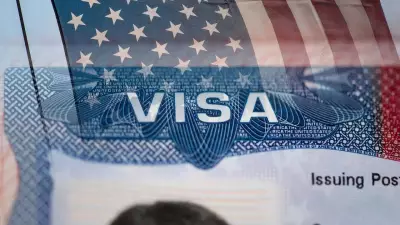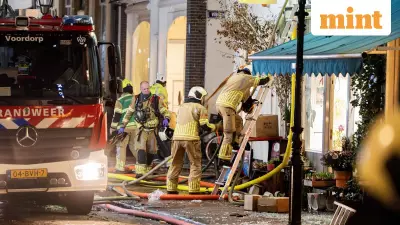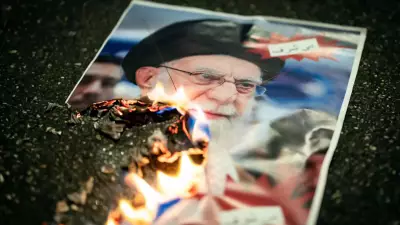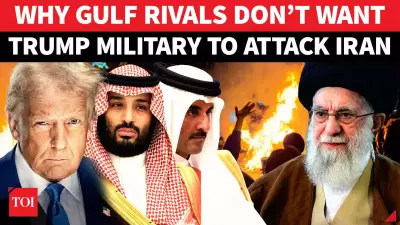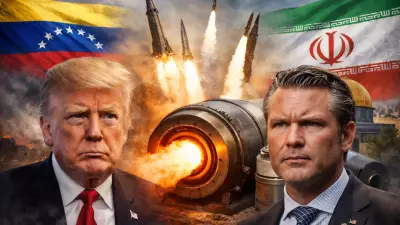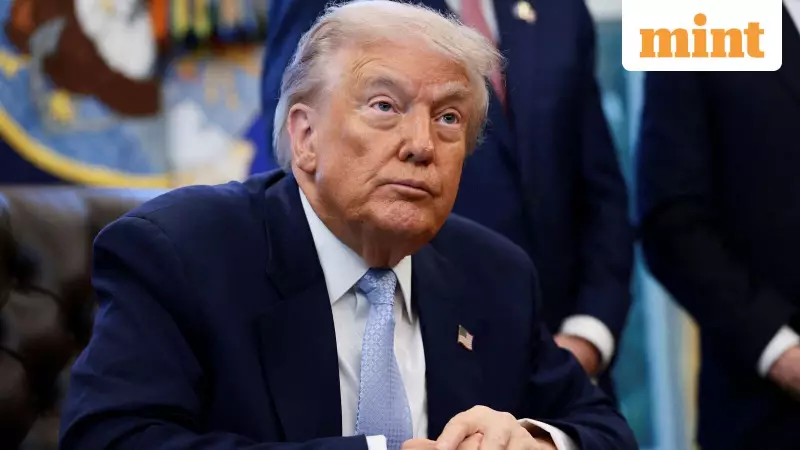
In a significant escalation of his administration's war on drugs, President Donald Trump has stated he would be open to authorizing military strikes within Mexico to dismantle drug cartels. The President made these remarks from the Oval Office, responding to questions about potential counter-narcotics operations targeting the flow of illegal substances into the United States.
Trump's Stance on Cross-Border Strikes
When directly asked if he would consider launching strikes in Mexico, President Trump's response was unequivocal. "Would I launch strikes in Mexico to stop drugs? It's OK with me. Whatever we have to do to stop drugs," he declared. However, he was quick to add a clarification, noting, "I didn't say I was doing it." Despite this, the President expressed pride in the potential action, asserting that such a move would save millions of American lives from the scourge of narcotics.
This statement comes against the backdrop of an ongoing US military campaign in the Caribbean and Pacific. The United States has significantly increased its military footprint in the region since August, deploying half a dozen warships, including the powerful USS Gerald Ford aircraft carrier. The objective of this buildup is explicitly to target and disrupt drug traffickers operating from Latin American countries.
Venezuela in the Crosshairs
The President's comments extended beyond Mexico, focusing sharply on Venezuela. He revealed his intention to speak with Venezuelan President Nicolas Maduro, whom he accused of not being "good to the United States." When pressed on whether he would rule out deploying US troops on the ground in Venezuela, Trump left the option open. "No, I don't rule out that, I don't rule out anything," he stated, emphasizing the need to "take care of Venezuela."
This stance is met with a complex situation on the diplomatic front. Venezuelan President Maduro, in a weekly television show, expressed his readiness for a "face to face" dialogue with any US representative willing to talk. This offer stands in stark contrast to the accusations from Washington, which has labeled Maduro's government a "terrorist" drug cartel—a charge Caracas vehemently denies. Venezuela, in turn, accuses the US of using its military buildup to seek a regime change.
Human Rights Concerns and the Toll of Strikes
The US military campaign has already seen tangible and deadly action. So far, the US has carried out over 20 strikes on boats allegedly ferrying drugs. The human cost of these operations is rising. Last month, six people were killed, and earlier this week, three more died in similar strikes. This brings the total number of deaths from the campaign to 83.
This aggressive approach has drawn criticism from international human rights bodies. Volker Türk, the chief of UN human rights, has called for an investigation into the US airstrikes. He believes that these military actions on boats in the Caribbean and the Pacific violate international human rights law. Despite these concerns, the Trump administration maintains that the sole focus of the military escalation is to staunch the flow of drugs entering the United States.

